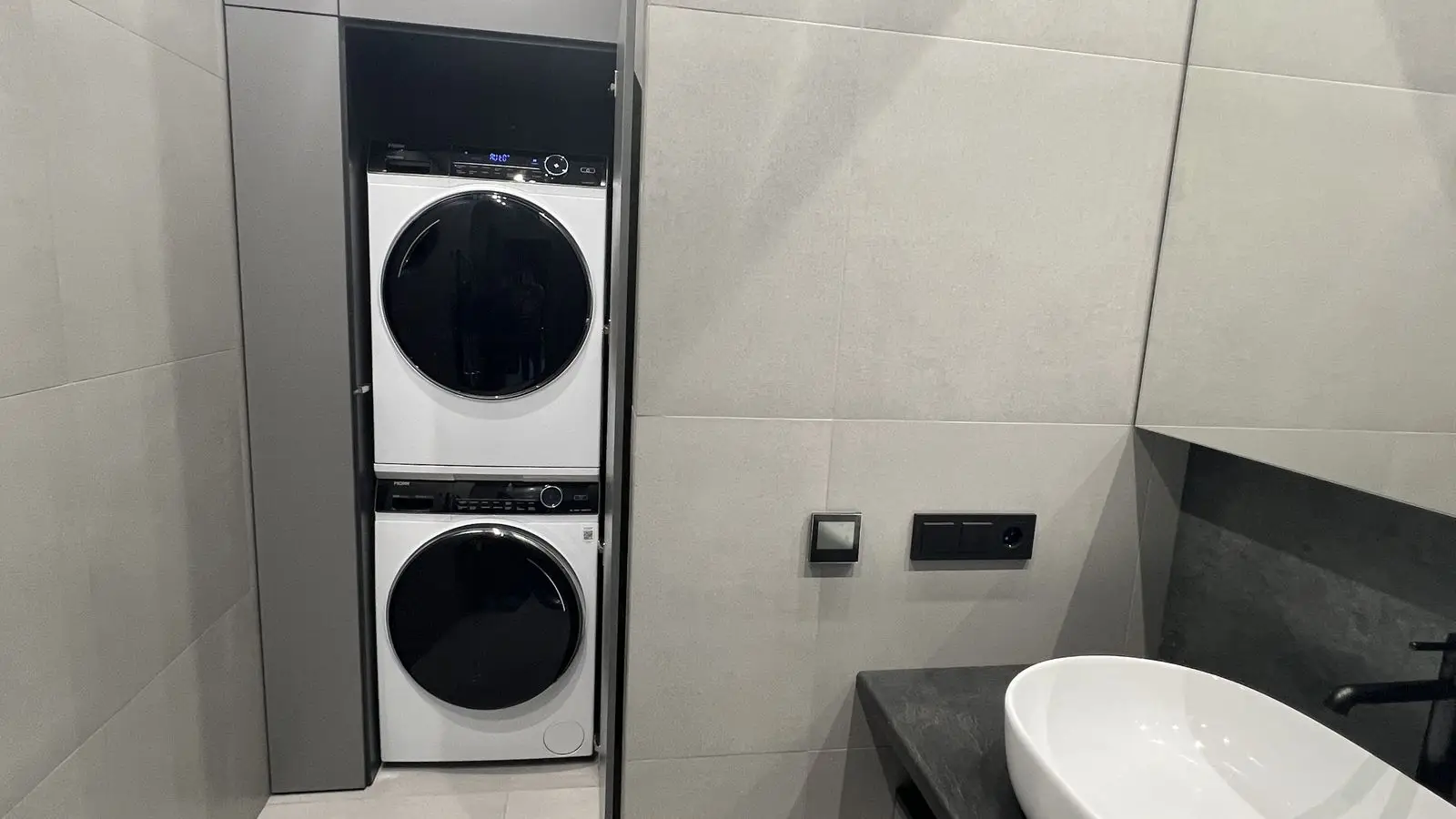https://boda.su/en/posts/id451-signs-your-washing-machine-needs-repair-or-replacement
Signs Your Washing Machine Needs Repair or Replacement
How to Recognize When Your Washing Machine Is Failing
Signs Your Washing Machine Needs Repair or Replacement
Discover the key signs your washing machine is breaking down. From loud noises to higher bills, learn when it’s time for repair or a new appliance.
2025-09-23T11:28:50+03:00
2025-09-23T11:28:50+03:00
2025-09-23T11:28:50+03:00
Washing machines have long become an essential part of everyday life. But how can you tell when this household helper starts to «fall ill» and needs repair—or even replacement? Experts point to several warning signs that shouldn’t be ignored.
Loud Noises During the Cycle
When the drum produces unusual banging or rumbling, it’s time to take action. The issue may lie in the motor, the shock absorbers, or the drum itself. Calling a technician early increases the chance of fixing the problem before it turns into a costly breakdown.
Irregular Water Levels
If your washer is filling with either too much or too little water, that’s a red flag. Excess water can stagnate, causing unpleasant odors and bacterial growth, while insufficient water lowers washing quality. In both cases, professional inspection is necessary.
Poor Washing Results
Clothes that come out dirty or poorly rinsed indicate trouble. The causes can range from a clogged filter to a malfunctioning heating element. Leaving this unchecked only makes matters worse.
Rising Utility Bills
Older machines often consume more power. If your water and electricity bills have spiked without clear explanation, the washer might be the culprit. Sometimes repairs end up costing more than replacing the appliance altogether.
Overloading the Drum
Stuffing more laundry into the drum than recommended speeds up motor wear and shortens the machine’s life span. Manufacturers set load limits for a reason—it’s worth following them.
Excessive Detergent Use
Adding an extra scoop of powder doesn’t boost cleaning power. Instead, it prolongs the rinse cycle and accelerates wear on the machine’s parts. This is especially critical for high-efficiency washers.
Persistent Bad Odor
Front-loading machines are prone to mold buildup. To prevent this, wipe the drum and rubber seals dry after use, leave the door ajar, and run occasional hot cycles with chlorine-based cleaners. If the smell lingers, professional cleaning—or replacement—may be the only option.
The Age Factor
On average, modern washers last between 8 and 11 years if used properly. The older the machine, the higher the risk of breakdowns and repair costs. At some point, investing in a new model becomes the smarter choice.
Washing Machine Repair, Washing Machine Replacement, Washer Maintenance, Washing Machine Problems, Laundry Tips, Appliance Lifespan, Home Appliances
2025
articles
How to Recognize When Your Washing Machine Is Failing
Discover the key signs your washing machine is breaking down. From loud noises to higher bills, learn when it’s time for repair or a new appliance.
© E. Vartanyan
Washing machines have long become an essential part of everyday life. But how can you tell when this household helper starts to «fall ill» and needs repair—or even replacement? Experts point to several warning signs that shouldn’t be ignored.
Loud Noises During the Cycle
When the drum produces unusual banging or rumbling, it’s time to take action. The issue may lie in the motor, the shock absorbers, or the drum itself. Calling a technician early increases the chance of fixing the problem before it turns into a costly breakdown.
Irregular Water Levels
If your washer is filling with either too much or too little water, that’s a red flag. Excess water can stagnate, causing unpleasant odors and bacterial growth, while insufficient water lowers washing quality. In both cases, professional inspection is necessary.
Poor Washing Results
Clothes that come out dirty or poorly rinsed indicate trouble. The causes can range from a clogged filter to a malfunctioning heating element. Leaving this unchecked only makes matters worse.
Rising Utility Bills
Older machines often consume more power. If your water and electricity bills have spiked without clear explanation, the washer might be the culprit. Sometimes repairs end up costing more than replacing the appliance altogether.
Overloading the Drum
Stuffing more laundry into the drum than recommended speeds up motor wear and shortens the machine’s life span. Manufacturers set load limits for a reason—it’s worth following them.
Excessive Detergent Use
Adding an extra scoop of powder doesn’t boost cleaning power. Instead, it prolongs the rinse cycle and accelerates wear on the machine’s parts. This is especially critical for high-efficiency washers.
Persistent Bad Odor
Front-loading machines are prone to mold buildup. To prevent this, wipe the drum and rubber seals dry after use, leave the door ajar, and run occasional hot cycles with chlorine-based cleaners. If the smell lingers, professional cleaning—or replacement—may be the only option.
The Age Factor
On average, modern washers last between 8 and 11 years if used properly. The older the machine, the higher the risk of breakdowns and repair costs. At some point, investing in a new model becomes the smarter choice.

